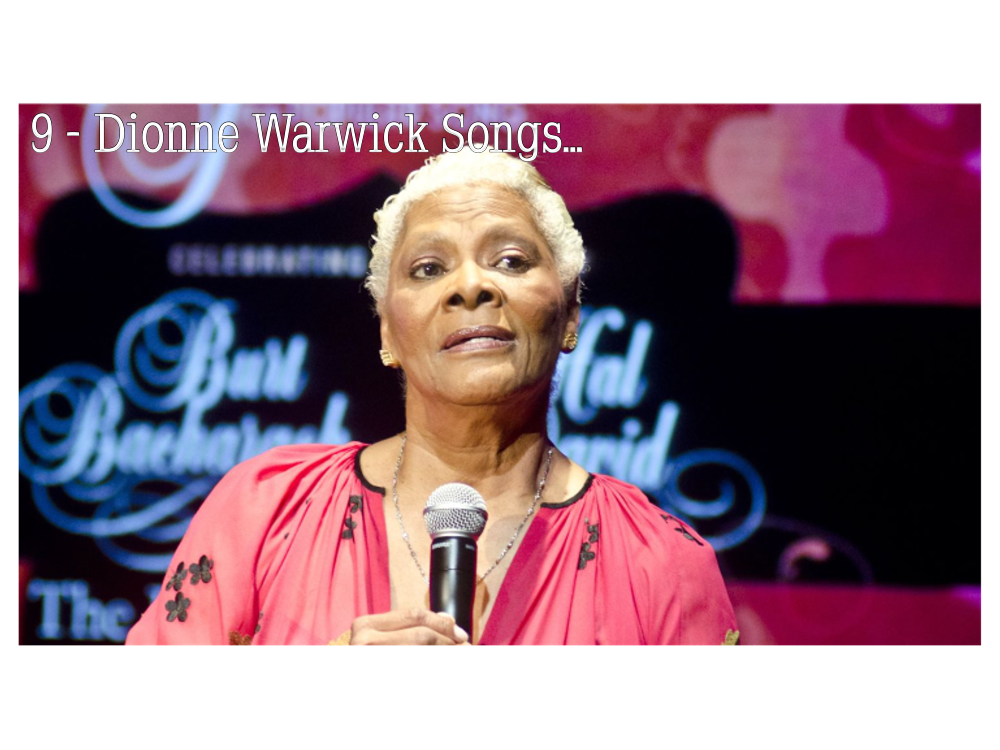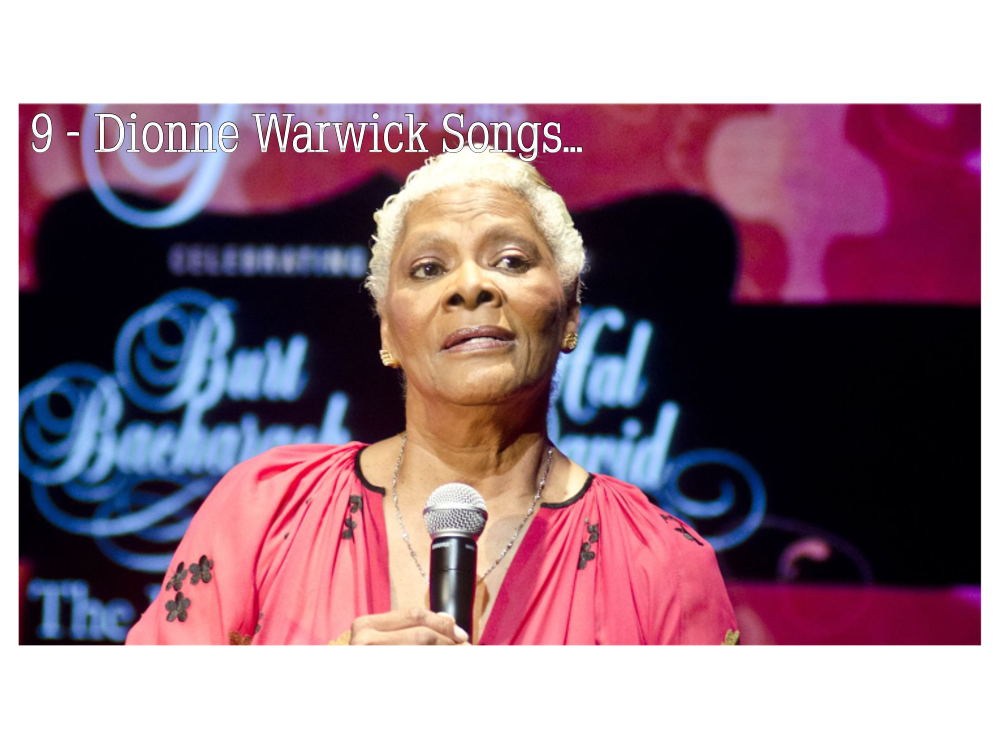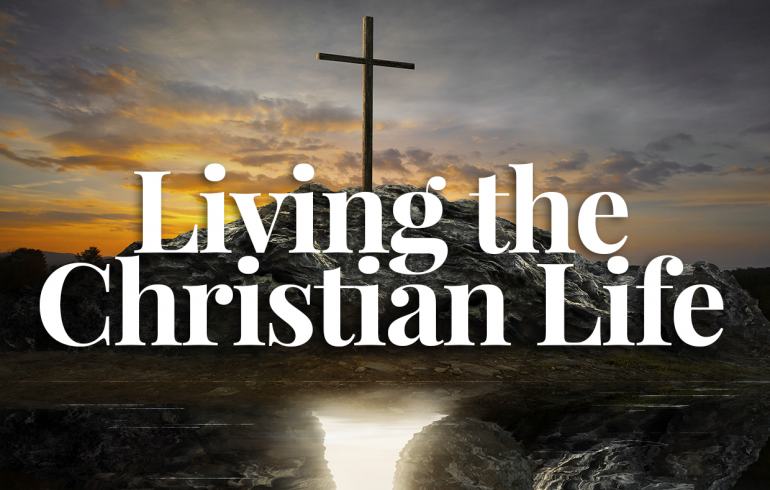-
 play_arrow
play_arrow
Praise 24/7 NO Today's Best Gospel

(ThyBlackMan.com) Dionne Warwick remains one of the most elegant and enduring voices in American music. Her career stretches across decades, and her artistry has never been limited to just one era. As the interpreter of Burt Bacharach and Hal David’s most sophisticated pop compositions, Warwick shaped the sound of the 1960s and early ’70s. But she didn’t stop there—her career grew into the disco era, the adult-contemporary charts of the 1980s, and even collaborations in later years that continued to showcase her timeless appeal.
Here are nine Dionne Warwick songs that one should absolutely check out—each not only emblematic of her artistry, but also still relevant and deeply listenable today.

1. “Walk On By”
What sets “Walk On By” apart from other heartbreak ballads of its time is its cinematic quality. Bacharach’s arrangement is layered with sophisticated chord changes, intricate horn lines, and a lush string section that swells beneath Warwick’s voice. The production makes the song feel like it’s playing out in widescreen, as though listeners are watching heartbreak unfold in slow motion. Warwick doesn’t simply sing over this arrangement—she inhabits it, her phrasing bending around its contours with quiet authority.
The song has had a lasting impact on popular music. Beyond Isaac Hayes’ legendary reinvention, artists from The Stranglers to Cyndi Lauper have covered it, each recognizing its universal theme. Yet none quite capture the icy dignity of Warwick’s original. In that sense, it’s a recording that not only defined her career but also set the gold standard for how restraint could amplify emotional depth.
Today, “Walk On By” still carries weight in playlists, movies, and TV shows whenever the subject is heartbreak or unrequited love. It doesn’t sound dated—it sounds eternal. Its sophistication has preserved it, and Warwick’s delivery continues to be studied by singers who want to learn how to express emotion without falling into melodrama.
Ultimately, “Walk On By” is both an anthem and a shield. It allows listeners to feel the sting of rejection while also encouraging self-preservation. The elegance of Warwick’s delivery ensures that heartbreak is not something to wallow in but something to endure with quiet grace.
2. “Do You Know the Way to San Jose”
At first listen, “Do You Know the Way to San Jose” may seem lighthearted, even whimsical, but dig deeper and there’s an undercurrent of melancholy. The song captures the bittersweet cycle of ambition: chasing big dreams, realizing their cost, and then longing for the stability of home. Warwick’s ability to balance the bright arrangement with a tinge of wistfulness makes it more than a sunny pop hit—it becomes an anthem for anyone who has struggled between ambition and contentment.
The Grammy-winning performance also showed Warwick’s versatility. Known for tackling sophisticated heartbreak ballads, she proved she could deliver playful material with equal skill. Yet she never turns the song into fluff. There’s a groundedness in her tone, a knowing quality that suggests she understands both the excitement of chasing fame and the exhaustion that comes with it.
In many ways, the song foreshadowed themes that would resonate for decades in American culture. The pull between small-town simplicity and the lure of big-city dreams remains a universal story. Listening now, “Do You Know the Way to San Jose” still feels fresh—whether you’re a young artist leaving home for New York or Los Angeles, or someone older reflecting on the life you left behind.
The song endures because it’s more than catchy; it’s relatable. Its bright bounce makes you smile, but its lyrics cut deeper if you’ve ever questioned the cost of your dreams. Warwick turns this duality into art, proving that pop music can be both joyful and poignant at the same time.
3. “Alfie”
Few songs in Warwick’s catalog embody sophistication and depth as much as “Alfie.” The Bacharach-David composition is philosophically dense, asking listeners to contemplate the meaning of love and the purpose of life itself. Warwick approaches it not as a performance but as a conversation. Her voice feels like a quiet guide, gently leading you toward reflection rather than pushing emotions onto you.
The genius of Warwick’s “Alfie” lies in her subtlety. While others, like Cilla Black and Cher, also recorded strong versions, Warwick’s is intimate and meditative. She doesn’t overwhelm the listener with vocal theatrics—she makes space for the weight of the lyrics to resonate. This restraint shows her deep understanding of how to interpret a song not just musically but philosophically.
Even now, “Alfie” feels strikingly relevant. We live in an era of uncertainty, where questions about love, meaning, and human connection remain unresolved. Warwick’s performance offers no easy answers but instead validates the act of questioning. In a way, that makes it timeless—it doesn’t date itself by trying to be definitive.
The track also underscores Warwick’s position as more than a pop singer; she was an interpreter of profound material. Listening to “Alfie” today is like revisiting a classic piece of literature or cinema—it rewards repeated engagement, and each listen reveals new layers. It’s a song that proves Warwick wasn’t just the voice of her generation—she remains a voice for anyone seeking meaning across time.
4. “I Say a Little Prayer”
What makes “I Say a Little Prayer” especially charming in Warwick’s hands is the intimacy she creates between singer and listener. Her delivery feels conversational, almost like a diary entry set to music. This intimacy makes the song feel authentic and relatable, standing in stark contrast to the more dramatic and fiery interpretations that followed.
The Bacharach arrangement—built on shifting time signatures and a deceptively complex structure—gives Warwick a rhythmic playground, but she never loses the song’s emotional thread. She makes the technical demands sound effortless, which only adds to the sense that we’re hearing something natural and spontaneous.
Over the years, the song has become something of a pop standard, covered and reimagined countless times. Yet Warwick’s version remains distinct because of its lightness. It doesn’t demand attention—it invites you in. This quality has allowed the song to endure as something you can listen to repeatedly without it ever feeling overbearing.
For modern audiences, “I Say a Little Prayer” has gained new resonance in an era that values mindfulness and small rituals. The act of saying a prayer—whether literal or metaphorical—while going about one’s daily routine feels grounding and human. Warwick captured that sense of everyday devotion in 1967, and listening today, it still feels like a gentle soundtrack to love woven into ordinary life.
5. “Anyone Who Had a Heart”
“Anyone Who Had a Heart” didn’t just put Dionne Warwick on the map—it announced her as a singular interpreter of the Bacharach-David songbook. The song’s unusual structure, with its abrupt shifts in rhythm and dramatic key changes, was notoriously difficult for vocalists. Yet Warwick navigates it with precision, turning those sharp corners into emotional pivots that highlight the pain of betrayal. Few singers could have made such a technically demanding song feel so natural.
What makes her performance especially powerful is its combination of vulnerability and command. She doesn’t plead in desperation—she asserts her heartbreak as an undeniable fact, almost challenging the listener to recognize its truth. The song becomes less about begging for love and more about demanding empathy. Warwick’s phrasing is measured but intense, every syllable carrying weight.
The cultural impact of “Anyone Who Had a Heart” was enormous. It became Warwick’s breakthrough, reaching the Top 10 in the U.S. and firmly establishing her as the voice of sophisticated pop-soul. British audiences also embraced the song, though it sparked controversy when Cilla Black’s cover outperformed Warwick’s version on the UK charts—a moment that highlighted both the international appeal of Bacharach-David compositions and the racial barriers Warwick faced as a Black artist trying to break into the European market.
Today, the track still sounds daring. Its rhythmic and melodic risks anticipate the kind of adventurous pop music that artists like Kate Bush and Björk would later explore. For younger listeners accustomed to predictable pop structures, “Anyone Who Had a Heart” feels refreshing. It’s a reminder that popular music can be both complex and emotionally raw, and that Warwick was blazing that trail long before many others.
6. “That’s What Friends Are For”
When “That’s What Friends Are For” was released in 1985, it was more than just a hit single—it became a cultural touchstone. The charity release raised millions for AIDS research at a time when the disease carried enormous stigma. Warwick, teaming with Elton John, Gladys Knight, and Stevie Wonder, helped transform the song into both a chart-topping anthem and a rallying cry for compassion. Her leadership on the project solidified her role not only as a legendary performer but as a humanitarian voice.
Musically, the song is pure 1980s adult contemporary, with lush keyboards, smooth backing harmonies, and a gently soaring chorus. Warwick anchors the performance with her warm, understated delivery, setting the tone before the other vocal giants add their touches. While Elton John brings flamboyance, Stevie Wonder injects soul, and Gladys Knight adds depth, it’s Warwick’s calm authority that keeps the song grounded.
Even decades later, “That’s What Friends Are For” resonates. Its message of loyalty, love, and community feels just as relevant in an age of digital connections and social isolation. For many listeners, it has become more than a charity single—it’s a comfort song, one that reaffirms the power of human bonds.
The song also illustrates Warwick’s adaptability. By the mid-1980s, the music landscape had shifted dramatically from her 1960s heyday. Yet she found a way to remain relevant without chasing trends. “That’s What Friends Are For” is proof that Warwick’s artistry was never locked in one era—she could carry her voice and credibility across decades, and still deliver a global hit.
7. “I’ll Never Fall in Love Again”
“I’ll Never Fall in Love Again” is one of Warwick’s most charming examples of balancing humor with heartbreak. The lyrics, penned by Hal David, are witty and conversational, laced with lines about germs, pneumonia, and heartache. In lesser hands, the material might have come off as novelty. Warwick, however, delivers it with elegance, giving the humor a bittersweet undertone.
The arrangement sparkles with Bacharach’s playful orchestration. The melody bounces along, yet Warwick’s phrasing adds layers of skepticism and resignation. She sounds amused but not convinced, as though she’s laughing to keep from crying. That duality—humor cloaking heartache—makes the song endlessly relatable.
For listeners in 1969, it was a refreshing break from the heavy, dramatic love ballads of the era. For modern audiences, it feels even more relevant. Today’s culture often uses humor as a way to process emotional pain, whether through memes, comedy, or self-deprecating wit. Warwick anticipated this cultural tendency decades earlier, showing that laughter and vulnerability can coexist in song.
The brilliance of “I’ll Never Fall in Love Again” lies in its lightness. It’s not a grand statement about love—it’s a playful shrug, a wink, and a sigh. That kind of tonal balance keeps it timeless. You can listen to it when you’re in the throes of heartbreak or when you’ve gained enough distance to laugh about it, and in either case, it feels perfectly suited.
Finish story here; 9 Dionne Warwick Songs That Shaped Pop and Soul Music.
Written by: Black Gospel Radio
Similar posts
-

Keepin’ It Real
with Jojo Walker & Jazzy Jenn
For every Show page the timetable is auomatically generated from the schedule, and you can set automatic carousels of Podcasts, Articles and Charts by simply choosing a category. Curabitur id lacus felis. Sed justo mauris, auctor eget tellus nec, pellentesque varius mauris. Sed eu congue nulla, et tincidunt justo. Aliquam semper faucibus odio id varius. Suspendisse varius laoreet sodales.
close Top popular

The Science of Happiness – Exploring Factors for Well-Being

Balancing Act: Prioritizing Your Well-Being in a Busy World

Overcoming Procrastination – Strategies for Productivity and Success

Unlocking Hidden Potential – A Guide to Personal Growth

Mindful Living – Cultivating Presence in the Modern Era

CONTACT US
- info@praise247no.com
FOLLOW US
- Praise247NO
- Praise247NO
- Praise247NO
Copyright 2024 Praise247no.com - All Rights Reserved.




Post comments (0)